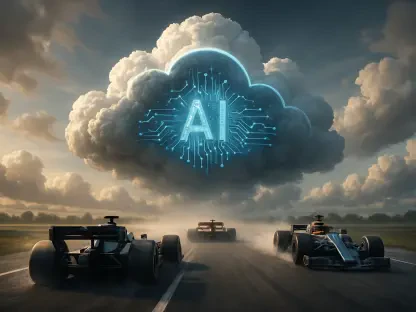The rapid evolution of generative AI technologies is profoundly reshaping the software development landscape, sparking intense discussions about its effects on workforce dynamics. This transformation raises questions about the future role of junior developers as companies increasingly integrate AI into their operations. Concerns abound about the potential redundancy of junior positions in light of AI’s growing capabilities. However, industry experts, including GitHub CEO Thomas Dohmke, assert that junior developers retain their importance in the tech sector, providing unique contributions that AI cannot replicate. Dohmke’s insights highlight a critical need to balance AI’s integration with preserving human creativity and innovation in software development environments.
The Integral Role of Junior Developers
Thomas Dohmke’s perspective suggests that junior developers are indispensable to the software development process, as they provide fresh perspectives and creative problem-solving skills. These emerging professionals often challenge traditional methodologies, fostering an environment ripe with innovation and adaptability. Despite AI’s rapid advancements, Dohmke contends that junior developers serve as key drivers of experimentation, breathing new life into project workflows. Junior developers are typically equipped with modern academic learning and diverse insights, making them valuable assets for teams seeking to stay competitive in the relentless world of technology.
The skills that junior developers bring to the table are critical in today’s tech landscape, where understanding consumer expectations for digital applications and services is paramount. Many young developers, hailed as ‘AI natives’, possess expertise in prompt engineering and an intuitive grasp of how AI can enhance user experiences. These competencies are particularly relevant as AI becomes an integral component of technological infrastructures across various industries. Maintaining a diverse mix of talents, including junior developers, is essential for companies looking to innovate and address consumers’ evolving needs effectively.
GitHub’s Initiatives and Programs
GitHub exemplifies a proactive stance in promoting junior talent within the development sector, illustrating its commitment through a robust internship program. Designed to equip early-career developers with hands-on experience, the program embodies the company’s efforts to cultivate a workforce rich with diverse backgrounds and skill sets. Dohmke underscores GitHub’s dedication to mentoring junior developers, ensuring they are embedded within teams to actively contribute to project outcomes. This approach not only enriches the learning experience for juniors but also enhances team dynamics by fostering a culture of openness and mutual learning.
The program offers aspiring developers a realistic glimpse into the demands and rewards of real-world coding projects, emphasizing cross-functional collaboration. By empowering junior developers to engage deeply with team objectives, GitHub harnesses their potential to influence the broader organizational ecosystem. This exchange of ideas and practices not only benefits the personal growth of young developers but also invigorates the company with novel insights and innovative solutions. GitHub’s initiatives reflect a strategic focus on nurturing talents who can navigate and contribute to the swiftly evolving tech domain.
Navigating AI and Employment
The introduction of agentic AI—technology that performs autonomously beyond traditional assistant roles—brings forth both opportunities and challenges for workforce configurations. Dohmke acknowledges that while AI technologies are encroaching on some aspects of labor, they are far from achieving full autonomy akin to concepts like self-driving vehicles. He emphasizes the necessity of human oversight in these systems, where ‘autonomy’ remains constrained by the need for human task hosting and model context cues. This ensures a balanced AI-human collaboration, where machines are guided by the strategic insights of skilled software engineers.
This evolving dynamic presents a dichotomy in the job market, with AI-induced contractions in entry-level roles raising valid concerns. Reports by observers such as SignalFire outline a decline in hiring rates for early-career positions, driven by both AI advancements and adverse macroeconomic trends. The industry faces a tension between embracing AI innovations and safeguarding opportunities for recent graduates. Voices like Anthropic’s CEO Dario Amodei echo the call for prudent deliberation to mitigate risks associated with substantial decreases in entry-level employment within tech firms.
Future Directions for AI and Junior Developers
The fast-paced development of generative AI technology is significantly altering the software development field and sparking heated debates about its impact on workforce dynamics. This shift raises important questions about the future of junior developers as businesses increasingly incorporate AI into their workflows. Many are concerned about the possibility that junior roles could become obsolete due to AI’s expanding capabilities. Yet, experts in the industry, including GitHub CEO Thomas Dohmke, emphasize the enduring value of junior developers in tech. These professionals bring unique skills and perspectives that AI cannot replace. Dohmke’s views underscore a crucial need to find a balance between the integration of AI and the maintenance of human creativity and innovation within software development settings. This highlights the necessity of understanding how AI can complement human skills, rather than replace them, ensuring a collaborative environment where both AI and human ingenuity drive progress in the industry.









